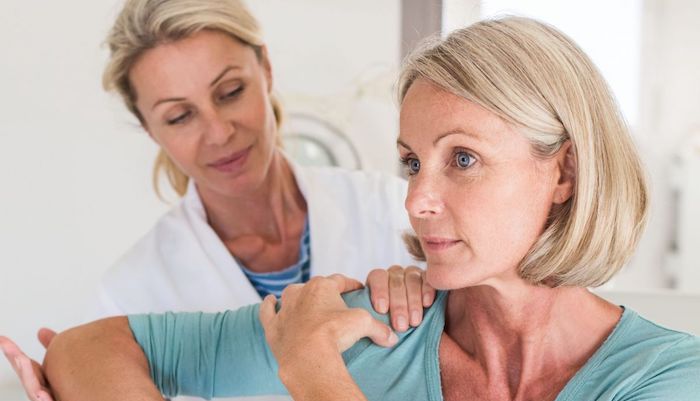
Menopause & Joint Pain in Women
As women age, they may start to experience joint pain. This can be caused by several factors, including natural aging, menopause, and other health conditions.
Joint pain can be debilitating, making it difficult to perform everyday activities. There are various treatment options available, both medical and home remedies. With the right treatment plan, menopausal joint pain can be managed effectively.
What Causes Menopausal Joint Pain?
Many factors can contribute to menopausal joint pain, which is a condition that affects more than half of the women around the time of menopause. As women age, the natural aging process can cause wear and tear on the joints, leading to pain.
Menopause can also cause changes in hormone levels that can lead to joint pain. Other health conditions such as arthritis or osteoporosis can cause menopausal joint pain in aging women.
Symptoms of Menopausal Joint Pain
Symptoms of menopausal joint pain can vary depending on the underlying cause. In general, menopausal joint pain is a dull, aching pain felt in one or more joints. Your joints may also feel stiff in the morning or after physical activity. Other symptoms can include inflammation, redness, and heat flashes.
How is Menopausal Joint Pain Treated?
Treatment for menopausal joint pain will vary depending on the underlying cause. Understanding whether the pain is occurring as a result of natural aging or of hormonal imbalances due to menopause is vital in determining the right treatment plan. Treatment options range from medication and physical therapy to lifestyle changes.
Home remedies for menopausal joint pain can include:
- Taking over-the-counter pain medication such as ibuprofen or acetaminophen.
- Applying ice or heat to the affected area.
- Soaking in a warm bath.
- Exercising regularly — focusing on low-impact activities.
- Losing weight if you are overweight.
- Wearing comfortable, supportive shoes.
Seeking Relief
If menopausal joint pain interferes with your everyday activities, it is vital to see a doctor. Additionally, if menopausal joint pain is accompanied by other symptoms such as fever or swelling, it is crucial to seek medical attention. If your condition does not improve with home remedies, a consultation with a pain physician is your next best bet. From here, the physician can help determine the cause of menopausal joint pain and develop a treatment plan.
Precision Pain Care and Rehabilitation has two convenient locations in Richmond Hill – Queens and New Hyde Park – Long Island. Call the Queens office at (718) 215-1888, or (516) 419-4480 for the Long Island office, to arrange an appointment with our Interventional Pain Management Specialist, Dr. Jeffrey Chacko.













